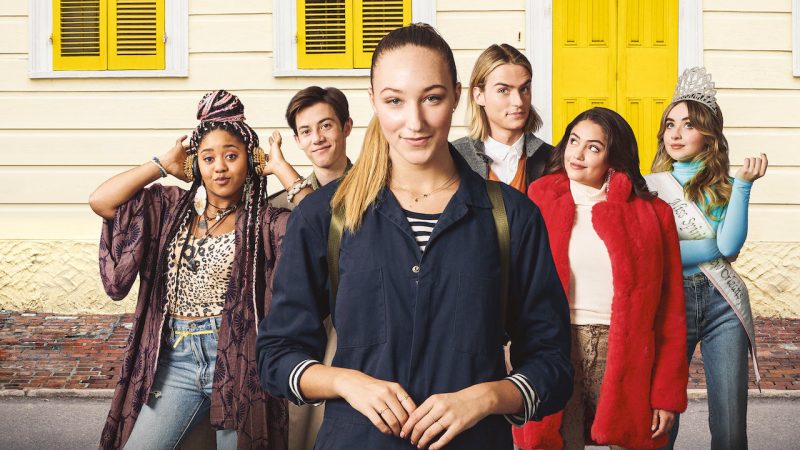Netflix just came out with a movie called Tall Girl. Guess what it’s about?
Sixteen-year-old, six foot one, “misunderstood” student Jodi is trying to get through high school, despite intense bullying due to her height. The movie wasn’t that good, but that’s not why I’m here.
For context, I’m six feet tall.
Life has consisted of my parents explaining that I really was five years old, despite being almost a foot and a half taller than my peers. I was the tallest in my class until high school, and – you guessed it – I did play volleyball and basketball. Being tall is the biggest and most obvious part of my physical identity. Quite like the movie depicts with Jodi, my height is usually the first thing someone notices about me.
If you’re a tall girl, then you know exactly what I mean. Growing up in a society where women are taught to take up less space, be “dainty” and “cute,” can be difficult when you are basically making out with your knees on every bus, train, or airplane.
Just like Jodi, I used to want to shrink. Actually, a lot of the thoughts and worries she had, I had too. The movie displayed a lot of truths about the experience of tall women, but one thing it very obviously lacked was perspective.
Jodi fits every societal beauty norm. She is straight, lean, white and cis-gender. I guarantee that if this were real life, Jodi would not be bullied or ostracized to feel like an other as she was in this movie. It placed Jodi into a narrative of systemic discrimination, and that’s the problem.
Jodi is not a minority. She’s not even an outcast. She’s a privileged young woman that wants to fit in with her peers – quite like I did. Listen, I get it. I still have trouble feeling confident with my height. Some days I feel like it’s truly all people can see. However, framing Jodi this way is not only inaccurate, but it causes distortion and misunderstanding regarding a larger problem of prejudice.
So, to be clear, I am talking about two very different things. The first thing is my experience with my physical identity and the reality of existing in the world with a larger body. I can speak to this experience being difficult and frustrating. I can speak to being teased, feeling undesirable, and wanting so badly to fit in. The second thing, nonetheless, is very different; and the distinction here is crucial. What Jodi and I cannot directly relate to is being marginalized. This movie blurs that line. It places tall white women into a discussion that we should not lead.
Look, I would love to see more tall women with leading roles on television. Watching someone I can identify with physically on screen makes me feel empowered. This, on some level, speaks to the power of representation. This being said, I think it’s pertinent to note that as a white woman, I am constantly being represented, be it on television, movies, magazines, etc. This representation allows white women to have a range of emotions, personalities, characteristics, and nuances that people of colour, and other marginalized groups lack in film. This movie placed Jodi in a specific box and chalked it up to her height, when in reality, Jodi would not have been consistently influenced by this stigma.
Teen movies and romantic comedies have an impact on how we view the world, especially for women. If Netflix really wanted to make a movie with a tall girl in it, I would have been thrilled, along with 15-year-old me. But by framing it as a negative part of her personality, and not letting her just exist as a tall girl with normal problems, relationships and interactions, it really failed for me.
Instead, they created an oversimplified and erroneous depiction of an issue that is not systemic and is more to do with having trouble finding size 13 women’s shoes.
Photo Source: Netflix




